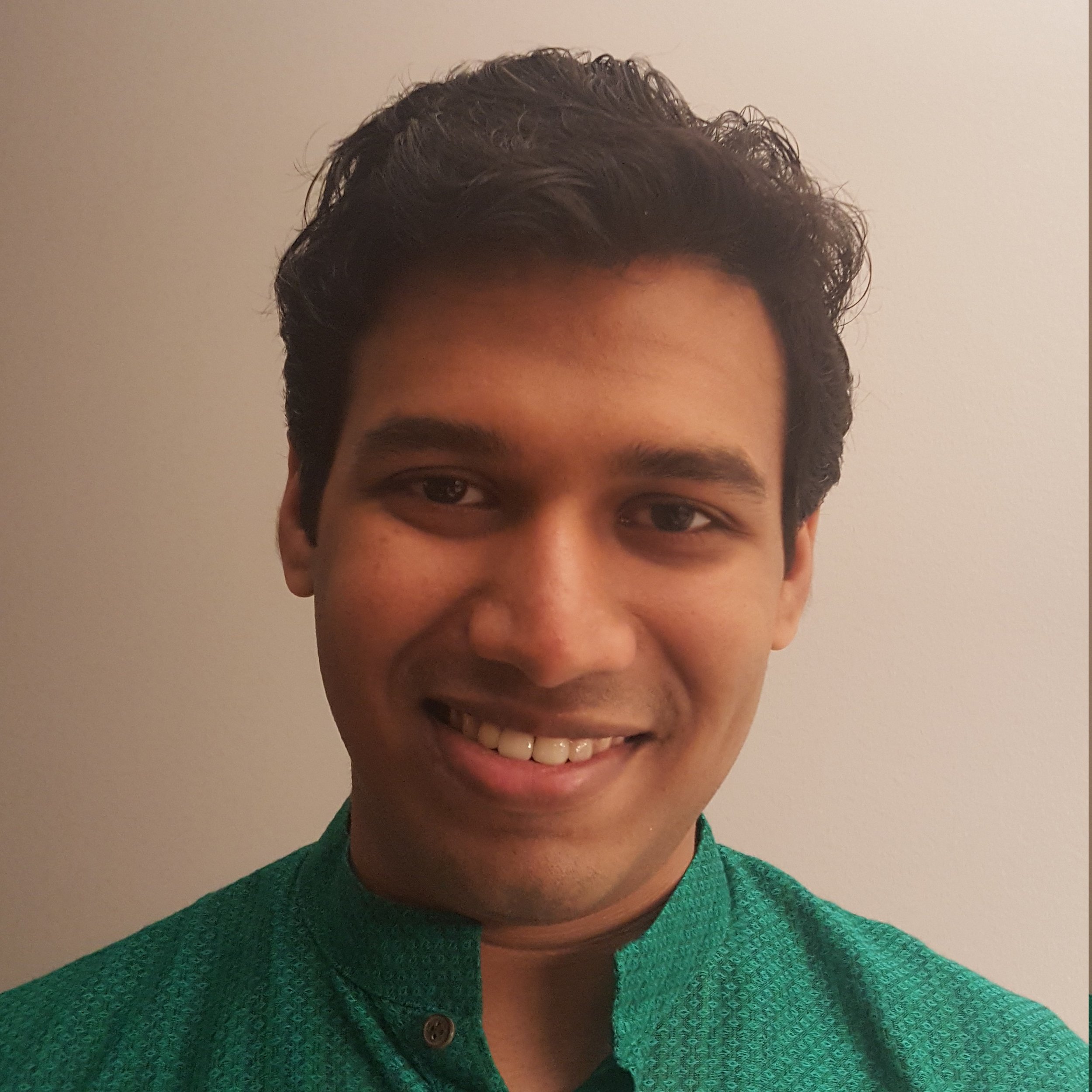Yadu Nand Babuji
/Current Position:
Developer, Computation Institute, University of Chicago
with RDCEP 2014

Current Position:
Developer, Computation Institute, University of Chicago
with RDCEP 2014

Current Position:
Senior Application Developer, Information Management, Gogo
with RDCEP 2010 - 2013:
Developer, Computation Institute, University of Chicago

Current Position:
Ph.D. Candidate, Department of Political Science, University of Chicago
with RDCEP 2012
Senior, Lindblom Math and Science Academy

Research Scientist
Computation Institute
University of Chicago
Areas of Expertise:
Choi currently focuses on computational issues and software design for solving scientific problems related to climate change and economic policies. She works on OSCEF, an open-source software framework and toolbox whose core is for formulating and solving large-scale computable general equilibrium (CGE) models, which are widely used in computational economics and climate policy analyses.
In 2012, Choi was awarded the SIAM Activity Group on Linear Algebra (SIAG/LA) Prize for the paper based on her doctoral dissertation, "MINRES-QLP: A Krylov Subspace Method for Indefinite or Singular Symmetric Systems," SIAM Journal on Scientific Computing, 33:1810-1836, 2011. The prize is awarded every three years by the Society for Industrial and Applied Mathematics (SIAM) and is considered one of the most prestigious prizes of its kind in the field. In 2007, Choi received Special Congressional Recognition from the U.S. House of Representatives for outstanding public service.
Choi received her PhD in Computational and Mathematical Engineering from the Stanford University. She was a Senior Member of Technical Staff with Oracle before joining the University of Chicago with a joint appointment in the Argonne National Laboratory. Choi is a member of the SIAM, the Association for Women in Mathematics (AWM), and the Hong Kong Mathematical Society (HKMS).
Master of Science in Environmental Science Policy (MSESP) Program, Harris School of Public Policy, University of Chicago
Stefano Castruccio, Graduate Student, Dept. of Statistics, University of Chicago
Graduate Student, Harris School of Public Policy, University of Chicago
Graduate Student, Harris School of Public Policy, University of Chicago

Gutgsell Professor, Department of Finance and Institute of Government and Public Affairs
University of Illinois, Urbana-Champaign
Areas of Expertise:
Fullerton’s early research in public economics focused on computable general equilibrium models of taxation, marginal effective tax rates, the marginal cost of public funds, and distributional effects of taxes on a lifetime basis. His more recent research includes the distributional effects of social security. In environmental and energy economics, Fullerton works on household disposal of garbage and recycling, policies for green design, vehicle emission control policies, carbon taxes, and other policies in the energy sector where direct environmental taxes are not feasible.
Don Fullerton received a BA from Cornell in 1974 and a PhD in Economics from UC Berkeley in 1978. He taught at Princeton University (1978-84), the University of Virginia (1984-91), Carnegie Mellon University (1991-94) and the University of Texas (1994-2008), before joining the University of Illinois in 2008. From 1985 to 1987, he served in the U.S. Treasury Department as Deputy Assistant Secretary for Tax Analysis.
Link:

with RDCEP:
Research Assistant, 2011-2012
Masters student, Harris school of Public Policy

with RDCEP:
Research Assistant, 2010-2011
Undergraduate, Department of Mathematics, University of Wisconsin
Undergraduate, Depts. of Statistics and the Geophysical Sciences, University of Chicago
Graduate Student, MSESP, Harris School of Public Policy, University of Chicago
Graduate Student, Harris School of Public Policy, University of Chicago
Undergraduate Student, Dept. of Economics, University of Chicago
Graduate Student, Dept. of Economics, University of Chicago
Areas of Expertise:
Judd's current research focuses on developing computational methods for economic modeling and applying them to tax policy, antitrust issues, macroeconomics, and policies related to climate change. He is currently the director of the Initiative for Computational Economics at the University of Chicago, and a member of the Natioanl Academies Board on Mathematical Sciences and Applications.
He was coeditor of the RAND Journal of Economics (1988–95) and the Journal of Economic Dynamics and Control (2002–2006), and associate editor of the Journal of Public Economics (1988–97). Judd is a fellow of the Econometric Society and served as a member of the Economics Panel of the National Science Foundation (1986–88).
Link: Ken Judd's web site
Undergraduate Student, Dept. of Economics, University of Chicago
Professor of Economics
Yale University
Areas of Expertise:
Kortum is a Research Associate at the National Bureau of Economic Research. He received his bachelor's degree from Wesleyan University and PhD in Economics from Yale.
Kortum was formerly on the faculty of Boston University and the University of Minnesota, a Staff Economist at the Federal Reserve Board, and a National Fellow at the NBER. In 2004, he and Jonathan Eaton received the Frisch Medal for their paper "Technology, Geography, and Trade." He is currently an editor of the Journal of Political Economy. In addition to international economics, Kortum has written on economic growth, innovation, technology diffusion, and firm dynamics. His research has appeared in top academic journals and has been supported by a series of grants from the National Science Foundation.